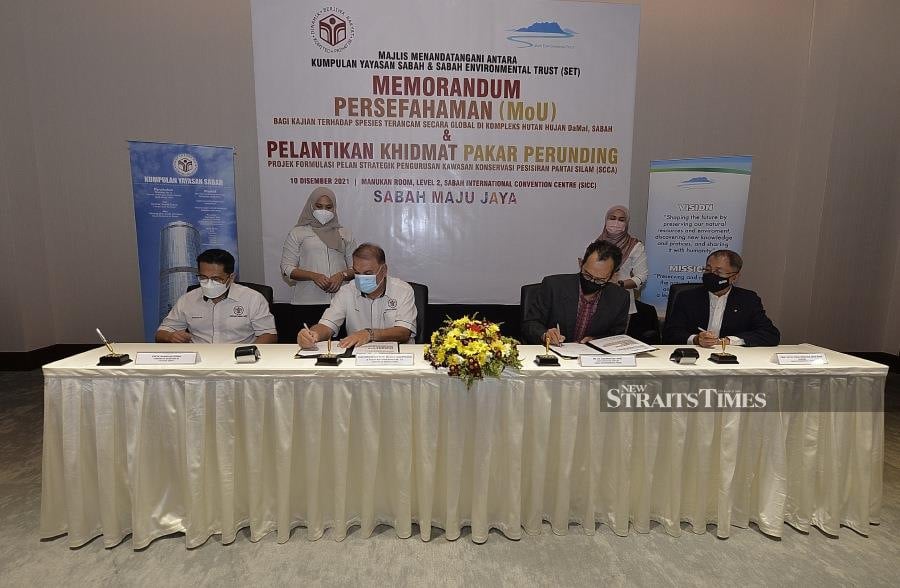By Olivia Miwil - December 10, 2021 @ 3:38pm
KOTA KINABALU: A study will be conducted in the Maliau Basin conservation area to focus on the Bornean Banteng and Bornean Elephant species.
Sabah Environmental Trust (SET) chief executive officer Dr Rahimatsah Amat said the research would be conducted by Universiti Malaysia Sabah Institute For Tropical Biology and Conservation (UMS) wildlife expert Prof Dr Abdul Hamid Ahmad who will lead the study as the Principal Investigator.
"Hopefully, with this study, the understanding of habitats, behaviours, and threats to wildlife, especially Bornean Banteng and Bornean Pygmy Elephant, will increase and serve to assist in providing further plans and strategies in conserving wildlife which is now the main natural treasure of Sabah.
"To further strengthen the efforts made by SET in providing support for the monitoring and enforcement project, SET very much welcomes this cooperation for the sustainability of conservation areas under the supervision of the Yayasan Sabah Group," he said in his opening speech at the signing of two Memoranda of Understanding (MoU) between SET and Yayasan Sabah Group.
The first signing is for a five-year study on threatened species at Danum Valley, Maliau Basin and Imbak Canyon (DaMaI) conservation areas. The other MoU concerns the appointment of consultants on the formulation of the 10-year Strategic Management Plan for the Silam Coastal Conservation Area (SCCA).
Present were Yayasan Sabah director Datuk Gulamhaidar Khan and Sabah Wildlife director Augustine Tuuga at the ceremony held at the Sabah International Convention Centre here.
According to Augustine, based on surveys five years ago, the elephant population in Sabah is between 1,500 and 2,000, of which about 1,000 of them are mostly found at DaMaI conservation areas.
"It is the same for orangutans, there are about 11,000 found at DaMal. However, the Banteng population is left with 500 which is also at DaMaI, Tabin Forest Reserve and Sugud.
"We are hoping that the population (of these species) will maintain and stabilise, and there is no poaching," he said, adding that the Sabah Wildlife department had compounded and brought poachers to court which would serve as a deterrent for others.
As for the ongoing population study of orangutan and pygmy elephants with WWF-Malaysia, Augustine said the survey would be conducted outside DaMaI areas.
Gulamhaidar said the MoU would make DaMaI significant in the eyes of the world and will further stimulate the Sabah state government's efforts in obtaining recognition of natural treasures as United Nations Educational, Scientific and Cultural Organisation (UNESCO) World Heritage Sites.
"Environmental conservation is an effort that needs to be implemented continuously and requires the mutual support of all parties. The natural treasures of DaMaI that we have today is a trust that we need to preserve for future generations," he added.
He said the appointment of consultancy services for SCCA will see SET responsible in collecting data, formulating and editing the strategic plan for 2023-2023 including handling scientific expeditions and holding discussions with stakeholders.
Prior to this, Yayasan Sabah Group and SET, and the Sabah Forestry Department have long collaborated through the DaMaI: Patrolling (Enforcement & Monitoring) initiative to monitor and protect wildlife.
The collaboration addressed poaching and illegal encroachment within the DaMaI Rainforest Complex through an MoU signed on Oct 24, 2017.

Comments
Post a Comment